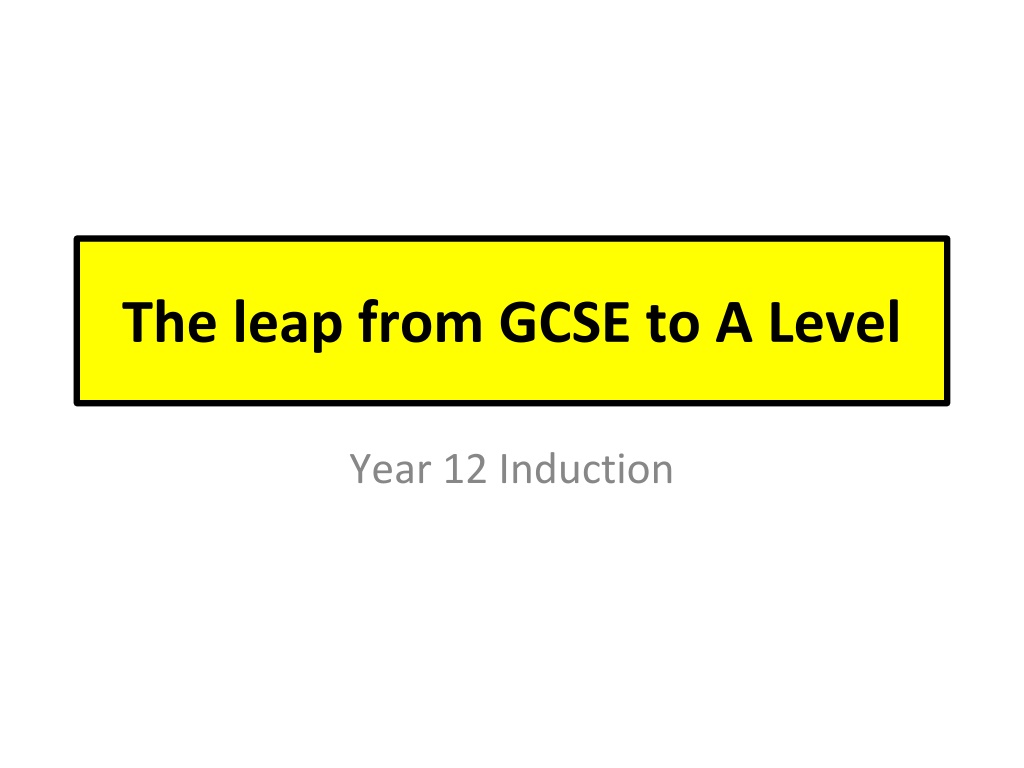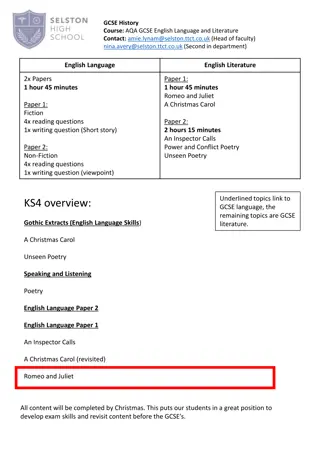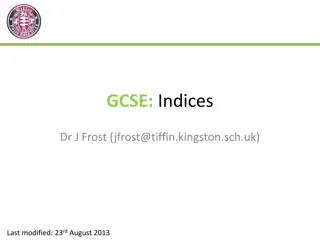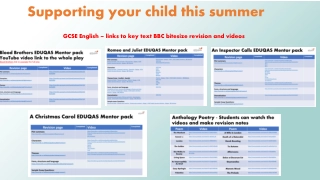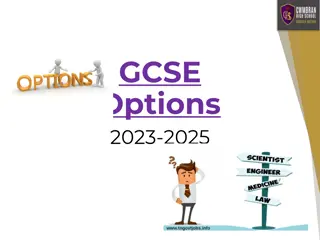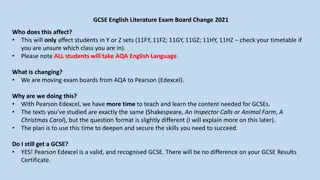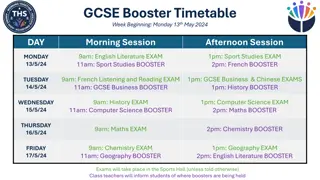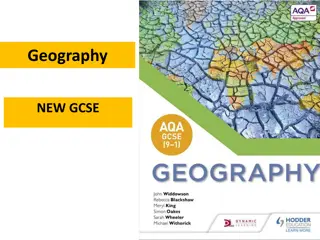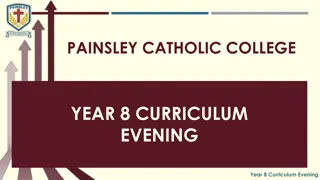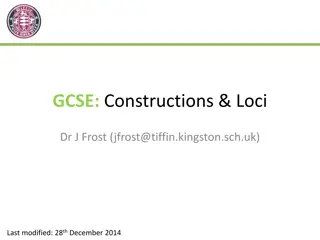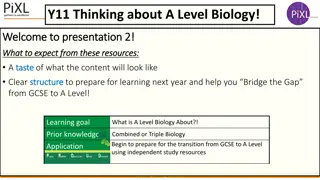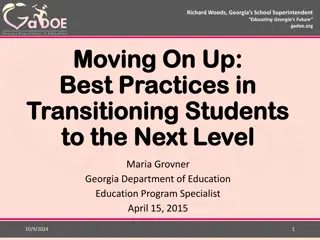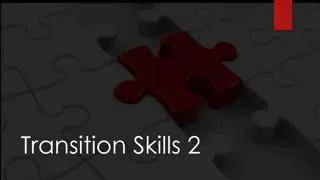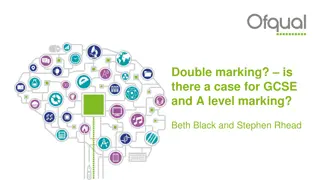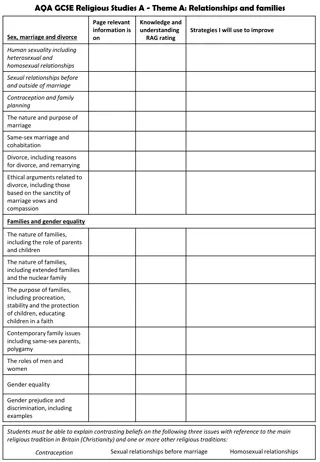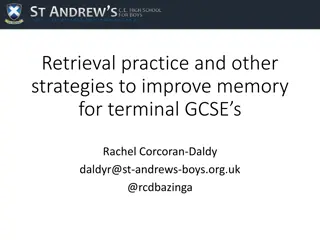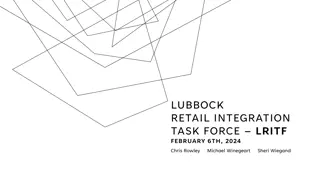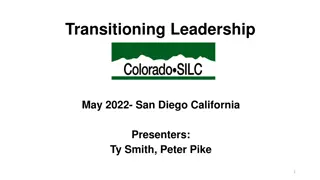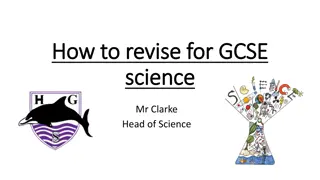Effective Strategies for Transitioning from GCSE to A Level
Discover key points and strategies for transitioning from GCSE to A Level education based on challenges faced in sixth form. Learn about the importance of independent learning, note-taking, organization, and essay writing skills. Utilize Cornell Notes for effective note-taking and long-term memory retention.
Download Presentation

Please find below an Image/Link to download the presentation.
The content on the website is provided AS IS for your information and personal use only. It may not be sold, licensed, or shared on other websites without obtaining consent from the author. Download presentation by click this link. If you encounter any issues during the download, it is possible that the publisher has removed the file from their server.
E N D
Presentation Transcript
The leap from GCSE to A Level Year 12 Induction
Leap from gcse to sixth form: realising the challenges Watch the Video- Leap from GCSE Take notes
Leap from gcse to sixth form: realising the challenges How did you get on? There were 10 key points, did you get them all down? Share with a partner
Now try this Watch the video again, this time use a table to structure your notes: Key Point Elaboration In this box make a note of the key point In this box write a few words to remind your self of why it was so important Example: LEAP There is a leap from GCSE, even if you achieved top GCSE grades Example: SPEED The speed of sixth form lessons is far quicker so you need to keep up.
Did you get all 10? 1. LEAP - There is a leap from GCSE, even if you achieved top GCSE grades 2. SPEED - The speed of sixth form lessons is far quicker 3. DISCIPLINE Less spoon-feeding so students need to keep up with work 4. INDEPENDENT learn how to work by yourself more 5. SELF-MOTIVATION less checking up by teachers about how much work you do at home 6. NOTE-TAKING learn to take decent notes from the start as there s limited time to go back 7. ORGANISATION be organised from the start as you will be over-whelmed otherwise 8. PRACTISE RECALL as there is too much content to learn if you leave it to Year 13 9. ESSAY WRITING SKILLS work on these from the start as the skills required only get harder 10. KNOW YOUR STRENGTHS AND WEAKNESSES and work on your weaknesses in Year 12
Note Taking Idea Cornell Notes
Finding ways that work. We do work hard in class, we do a lot of work. How can we make class notes more effective, more revision-worthy?
Cornell Notes: This is deemed the best note-taking in the world. You will need to store a vast amount of knowledge in your Long Term Memory. Your Working Memory is relatively small (5 to 7 things), while your Long Term Memory is vast. You need to organise the information into schema in order to access or recall it. You need to adopt a systematic approach to learning, rather leaving it chance.
How to take Cornell notes https://www.youtube.com/watch?v=WtW9Iy E04OQ
In Practice After class Highlighting: Highlight important information Cues and questions: Create a few hints to remind you of the content Summary: Make a brief summary of what you learned that lesson
Key Words Date & Title Key Questions/ Cues Key Theories General Notes After class Highlighting: Highlight important information Cues and questions: Create a few hints to remind you of the content Summary: Make a brief summary of what you learned that lesson Summary:
Activity Watch this video https://www.youtube.co m/watch?v=7HUYGoJ2bD 0&feature=emb_logo Take Cornell notes using the suggested template Compare to the example on the next slide
Things I wish I knew before starting Sixth Form Watch the video 10 things I wish I knew
